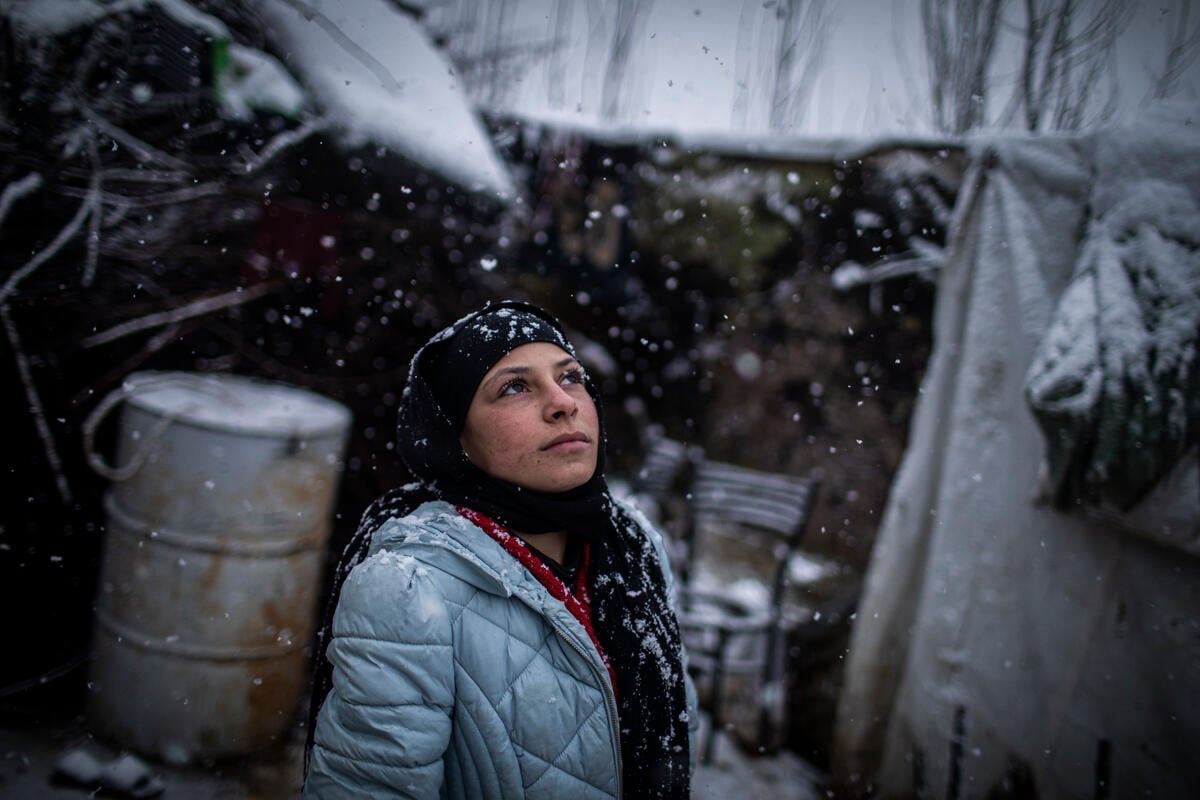UNHCR calls for an investigation into the death of two Iraqis at the Bulgaria-Turkey border, raises concerns over border practices
UNHCR calls for an investigation into the death of two Iraqis at the Bulgaria-Turkey border, raises concerns over border practices
UNHCR continues to receive testimonies from people seeking international protection, who have been denied entry, have been "pushed back" or encountered violence at the European Union's external borders. UNHCR is concerned over a recent incident where two Iraqi men lost their lives earlier this month at the land border between Bulgaria and Turkey. According to the information received, a group of 12 Iraqis belonging to the Yazidi minority, who were trying to enter Bulgaria from Turkey, were stopped by Bulgarian border guards. The Iraqis had their belongings seized and were badly beaten up. The group scattered and two of the men, who had sustained severe injuries, died later of hypothermia on the Turkish side of the border. According to the reports, a third person who was travelling with the group was taken in a critical condition to a hospital in Edirne, after the Turkish Gendarmerie was alerted and carried out a search operation to locate the victims.
UNHCR urges the authorities in Bulgaria and Turkey to investigate this grave incident. We are particularly disturbed by the accounts of brutality which may have contributed to the deaths of two people who, being members of the persecuted Yazidi community, were likely to have been refugees.
Reports and testimonies gathered by UNHCR in 2014, indicate that people searching for international protection often attempted to cross the border into Bulgaria multiple times, but had to turn back because of bad weather, were abandoned by the people smugglers they had paid to take them across the border, or were intercepted by the Turkish authorities before they managed to cross the border. Many, however, reported being denied entry or being "pushed back" by Bulgarian border guards. "Push-backs" are not in conformity with Bulgaria's obligations to admit asylum-seekers to their territory. The use of violence has also been reported and, in many cases, people say that their money and property were confiscated by border police.
With few legal alternatives to enter the European Union, many people fleeing conflict and persecution are undertaking increasingly dangerous journeys and using smugglers to reach safety. It is deeply disturbing that people in search of international protection are being turned away, often with violence. EU member States at the external border need to ensure that these practices stop, and should conduct independent and transparent investigations into allegations of abuses and illegal practices in their border regions.
Bulgaria is planning to add an additional 82 kilometres of razor wire fences to the existing 33-kilometre fence that was constructed in 2014 in response to an increase in the number of irregular arrivals, the majority of them from Syria. Efforts to reduce the number of irregular arrivals and asylum-seekers in Bulgaria had a significant effect in 2014 with almost 50% less arrivals than the previous year. According to the Bulgarian authorities, over 38,500 people attempted to cross irregularly the Bulgaria-Turkey border in 2014. Of these, around 6,000 - mostly Syrians, Afghans and Iraqis - reached Bulgaria. This is a significant drop in comparison to the 11,500 irregular arrivals (out of over 16,700 attempts) registered in 2013.
The limited access to border posts, combined with the construction of more fences and "push-backs" are leaving asylum-seekers with very few options. UNHCR has received emergency calls from people, mostly Syrians, who walked for days in harsh weather in remote areas to try to reach Bulgaria. Erecting fences and creating more barriers instead of providing additional legal avenues to reach safety in the EU pushes people in need of international protection into increasingly dangerous situations with, sometimes, fatal consequences.
Elsewhere, UNHCR has raised concerns over reports of border practices that might place refugees and migrants at risk, notably in Greece, where UNHCR has documented numerous accounts of "push-backs" at the land and sea borders with Turkey, especially in the last two years. UNHCR will address its recommendations to the new Greek government about suggested improvements on various refugee-related protection issues, including a management of the country's borders that takes into account the protection needs of refugees and asylum seekers.
For more information on this topic, please contact:
- In Geneva, William Spindler on mobile +41 79 217 3011
- In Budapest (regional), Kitty McKinsey on mobile +36 30 530 9633
- In Sofia, Boris Cheshirkov on mobile +359 878 507 041








